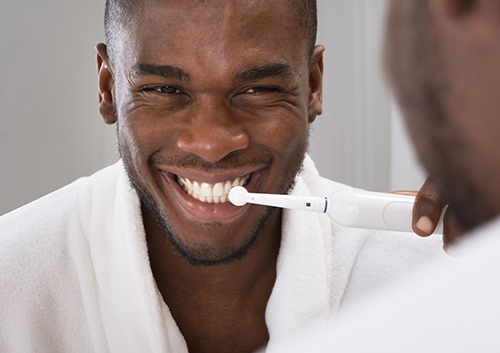Anemia and Your Oral Health
March 4th, 2026

One of the most common clues that you might have anemia is found in your smile. If you’ve noticed that your gums are suddenly paler than they used to be, it could be a sign that you’re anemic. What does this mean for your general health—and your oral health?
There are several types of anemia, which have can be caused by different medical conditions and which can cause different symptoms. The most common form of anemia, and one of the most easily treated, is iron-deficiency anemia.
Iron is essential to our health. Why? It’s all about the red blood cells. First, some biology.
Every cell in your body needs energy to live and to function. Cells get this energy from the foods we eat, which are broken down into a simple sugar called glucose. Glucose molecules are transported by our blood cells to reach all parts of the body. But that’s only the first step.
Energy is released into the cells when the chemical bonds holding glucose molecules together are broken. And this requires oxygen. Once inside our cells, glucose and oxygen react, breaking the chemical bonds of the glucose molecules, reconfiguring their atoms to create carbon dioxide and water byproducts—and releasing energy into a form your cells can use.
So, how do we move this oxygen from our lungs to our cells to start the process? That would be our red blood cells again. But this process can’t happen without adequate iron. More biology!
Red blood cells contain a protein called hemoglobin, and hemoglobin contains iron. In fact, well over half of the iron in our body is found in our red bloods cells. And here’s the key to iron’s importance: iron attracts oxygen molecules.
Hemoglobin picks up oxygen in our lungs and delivers it throughout the body, where it becomes glucose’s essential partner in fueling our cells. Without enough iron, your body won’t be able to create the red blood cells it needs so that all of your cells, tissues, and organs can get the oxygen they need to function efficiently.
When might you suspect that you’re anemic? Your gums, the lining of the mouth, the inside of your lower eyelids, and your skin can take on a paler hue—the classic sign of anemia. But other symptoms which you might not necessarily associate with anemia are also common, including:
- Fatigue
- Heart palpitations
- Cold hands and feet
- Dizziness
- Irritability
- Difficulty Concentrating
- Pica (the desire to eat non-food items)
And because anemia affects the whole body, your oral health isn’t immune. It’s not just a matter of pale gums. Iron deficiencies can cause:
- Sores and ulcers in the mouth
- Cracks on the sides of the mouth
- Pain, redness, and/or swelling of the tongue
- Loss of papillae (those little bumps on your tongue which hold your taste buds)
- Tooth damage caused by pica
- Dry mouth, which increases your risk for cavities, gum disease, oral infections, and bad breath
Iron-deficiency anemia can have several causes, among them insufficient iron in the diet, medical conditions which cause bleeding (such as ulcers), heavy menstruation, pregnancy, or growth spurts in children and teenagers. Treatment will depend on the cause of your anemia. It might be as simple as a change in diet or an iron supplement, or it might require further treatment options. Do consult with Dr. Gary Yanowitz before taking iron supplements, as too much iron causes iron toxicity, which can be very dangerous.
If Dr. Gary Yanowitz and our team suggest that you might be anemic, or if you notice changes you think might be caused by anemia, see your physician for a simple blood test. Besides iron-deficiency anemia, there are other forms of anemia and other diseases which can mimic these symptoms, so it’s important to get a doctor’s diagnosis. If you have been diagnosed with anemia, let our Cooper City, FL dental team know.
One last “if”: If you do have iron-deficiency anemia, don’t delay treatment. The sooner your red bloods cells are back at their peak, the sooner you—and your gums—will be back in the pink!



